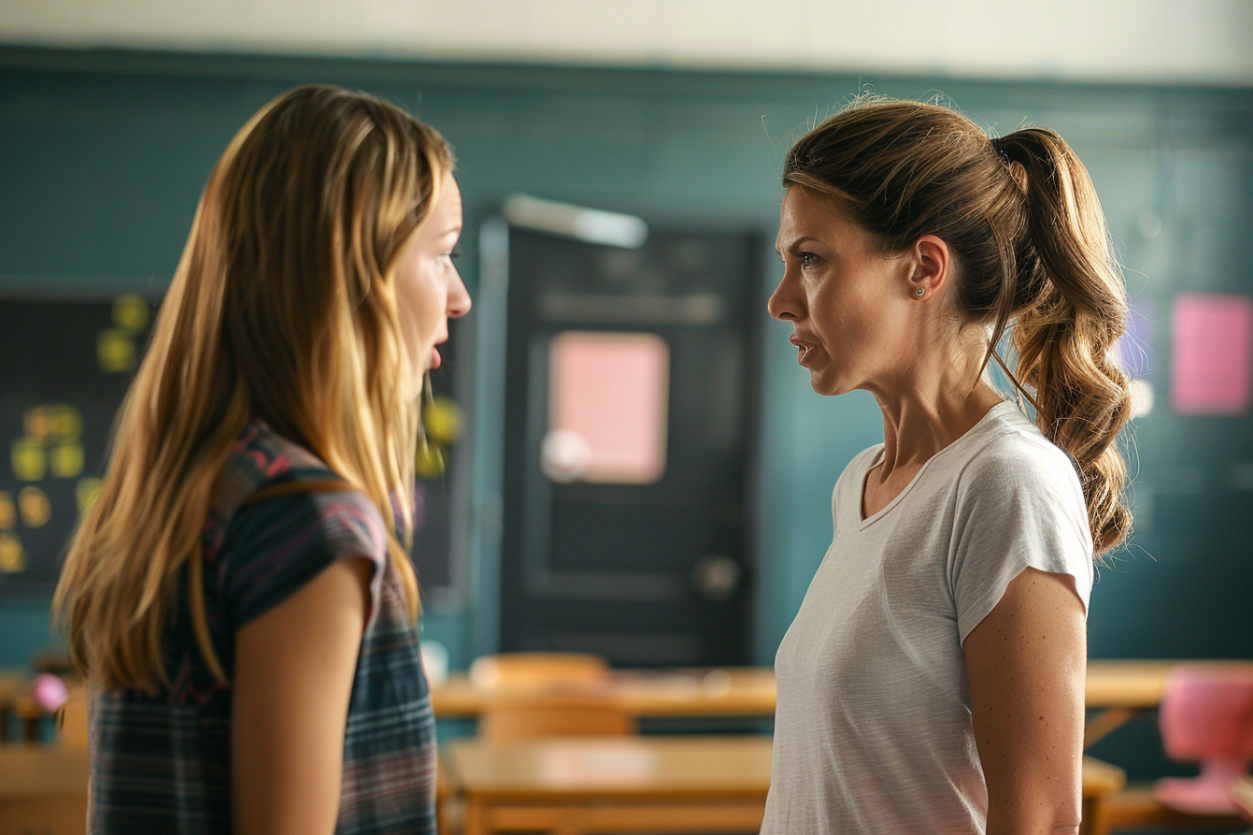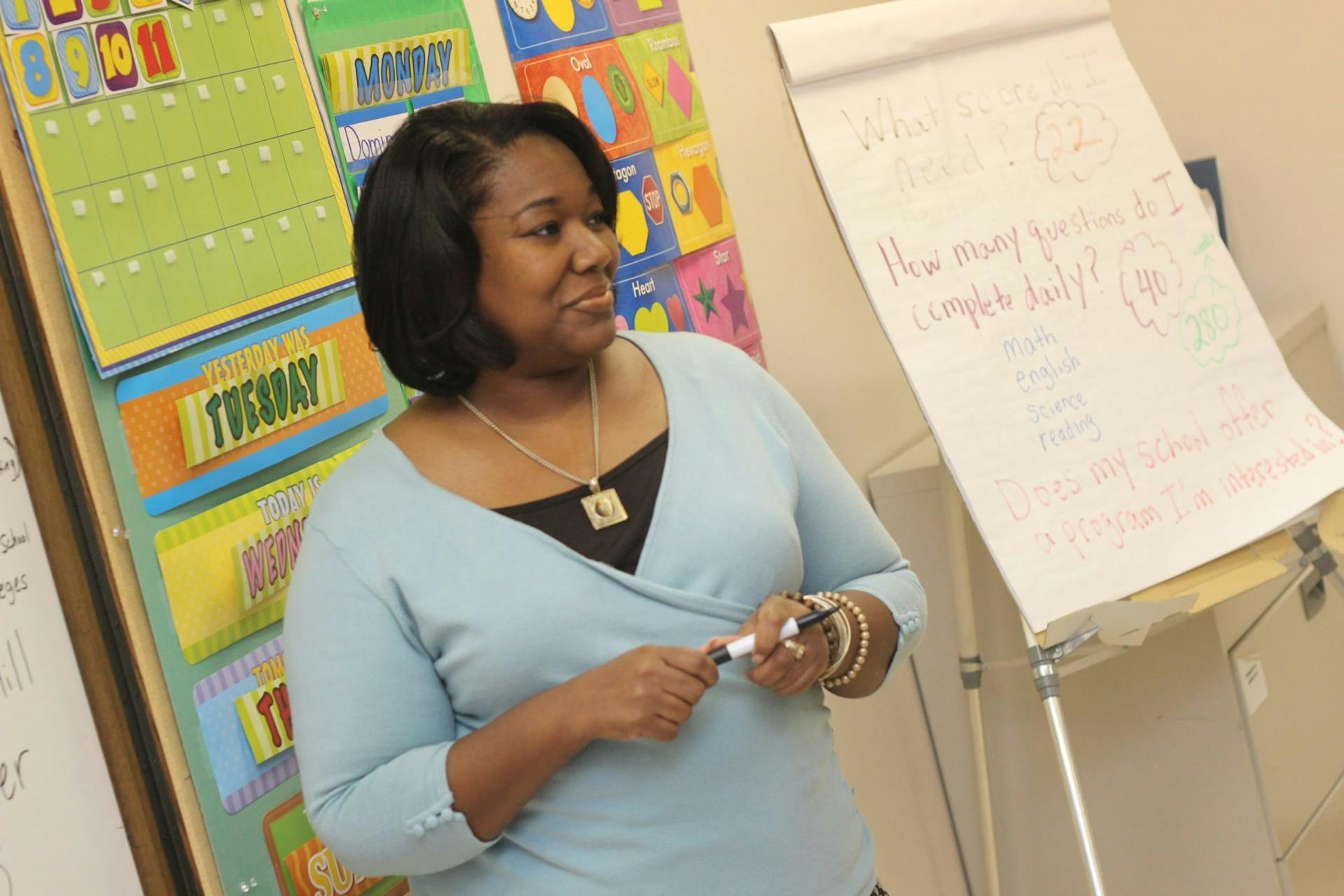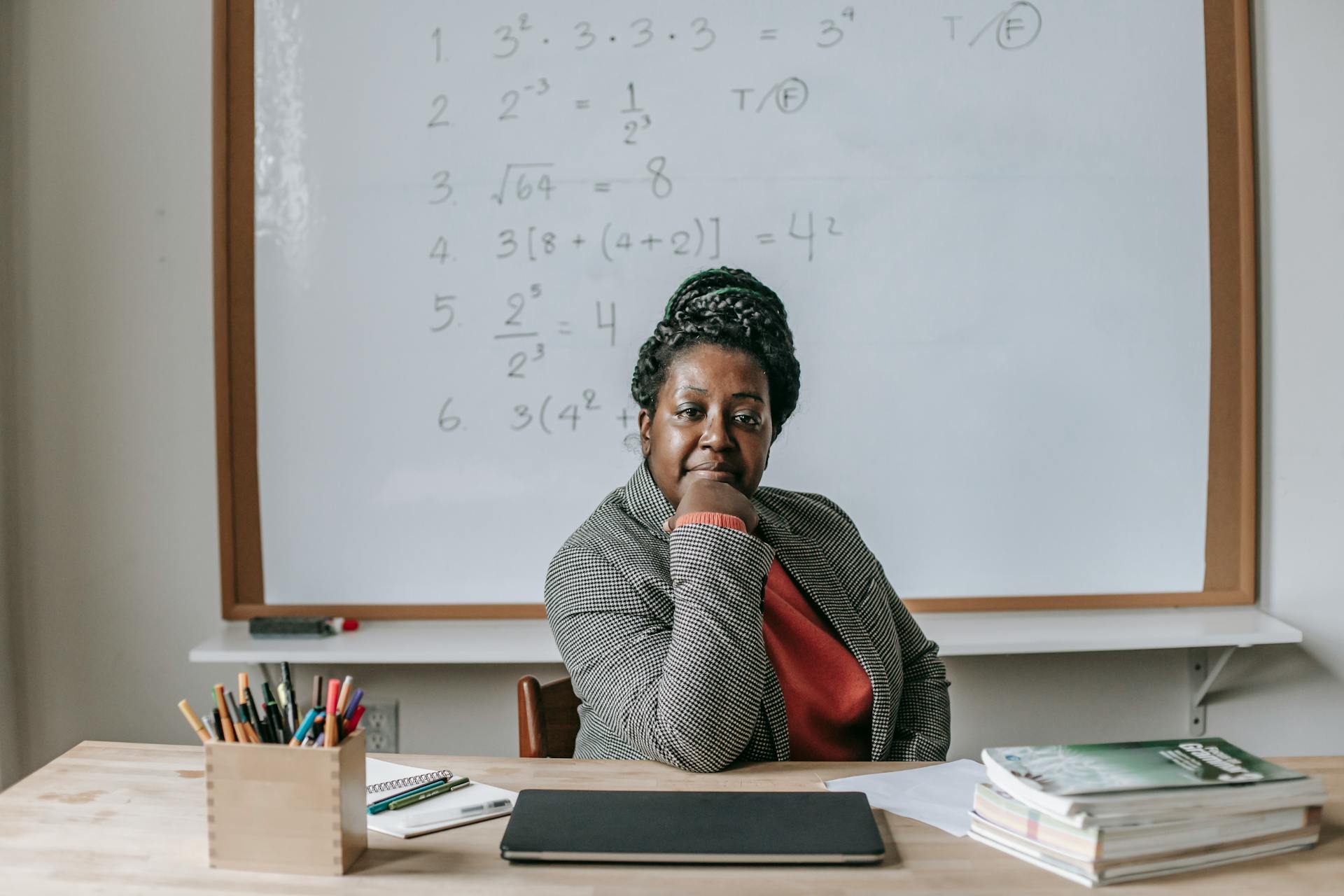
Rich Mom Screamed at Me for Seating Her Son Next to a Poor Girl — I Gave Her a Reality Check
When rich mom, Mrs. Lawson exploded over her son Max sitting next to a "food-stamp girl," I knew I had to act. I challenged Mrs. Lawson to join the parents' committee, exposing her to the school's real struggles.
Let me tell you about the day Mrs. Lawson stormed into my classroom like a thunderstorm in designer heels.
It was one of those crisp fall mornings, where the leaves outside the window were just starting to turn, and the smell of coffee lingered in the hallways.

Children in a school hallway | Source: Pexels
I was finishing up a lesson plan when the door burst open, and there she was, eyes blazing with a fury I hadn't seen since my first year teaching.
"Ms. Harper, I need a word," Mrs. Lawson said, her voice sharp enough to cut glass.
She didn't wait for a response. She just marched in, her expensive perfume trailing behind her like a warning.
I took a deep breath, keeping my tone steady and warm.

A teacher working at her desk | Source: Pexels
"Good morning, Mrs. Lawson. What can I do for you today?"
"It's about my son, Max," she began, her words dripping with indignation. "His grades have been plummeting ever since you moved him next to that... food-stamp girl."
Ah, here we go, I thought. Just last week, I'd moved her entitled son away from his friends so he might actually focus in class and get better grades. He'd kicked up a huge fuss, and I'd been expecting some kind of blowback from his wealthy family.

A stern woman | Source: Pexels
"That 'food-stamp girl,' as you so insensitively put it," I replied, "is Lily, one of our brightest students. I seated Max next to her because I believe she can be a positive influence on him."
Mrs. Lawson scoffed, crossing her arms. "Positive influence? What if he gets lice from her? I hope you know I'll expect you to pay the medical bills."
I felt my patience stretch thin but held my ground. "Mrs. Lawson, we have no evidence of lice in the classroom. And it's important for students to learn to work together, regardless of their backgrounds."

Two women having a serious conversation | Source: Midjourney
She took a step closer, her voice lowering to a venomous whisper. "You will move Max away from that girl, or I will make sure the school board hears about this."
I met her gaze steadily, refusing to be intimidated. Then I had a brilliant idea.
"Alright, Mrs. Lawson, I'll move Max, since you feel so strongly about it, but on one condition… you join our parents' committee. We value parental input and would appreciate your involvement, since you're so worried about the kids in our school."

A woman looking thoughtful | Source: Pexels
For a moment, she seemed taken aback. Then, a smug smile crept onto her face. "Fine. If that's what it takes to fix this mess, then I'll do it."
"Wonderful," I replied with a smile that probably had more edge than warmth. "I'll have Principal Jenkins add you to the next meeting's agenda."
As soon as she left, I let out a sigh of relief. That woman could wear anyone out. But I knew this was just the beginning.
The next parents' committee meeting was a sight to behold.

A contemplative woman | Source: Pexels
Mrs. Lawson walked in, head held high, clearly expecting to take charge. What she didn't anticipate was the sheer volume of work and the diverse range of issues we tackled.
From fundraising for underprivileged students to addressing health concerns, she was quickly buried under a mountain of responsibilities.
"Mrs. Lawson, could you handle the bake sale for the new library books?" one parent asked.
"And we need someone to organize the winter coat drive," another added.
"Also, we could use your help with the hygiene kits for the kids," a third chimed in.

A mother attending a school committee meeting | Source: Midjourney
Mrs. Lawson's confident facade began to crumble as the requests piled up. She nodded, looking overwhelmed, and I couldn't help but feel a twinge of satisfaction.
She had walked into this thinking she could throw her weight around and fix her perceived problems with a snap of her fingers. Now, she was knee-deep in the realities of running a school community.
Meanwhile, Max's grades continued to drop, no matter where he sat in the classroom. Mrs. Lawson's frustration grew with each passing week.

An unhappy boy seated at his school desk | Source: Pexels
She stormed into my classroom again two weeks later, but this time her threats were less fierce, her voice edged with desperation.
"Ms. Harper, we need to talk," Mrs. Lawson said, her tone a shadow of its former self. She was trying to keep it together, but I could see the cracks.
"Of course, Mrs. Lawson," I replied, looking up from my desk. "Please, have a seat."
She ignored the chair and stood in front of me, arms crossed.

A concerned woman | Source: Pexels
"Max's grades are still falling. He's failing, Ms. Harper. Do you understand? Failing!" She leaned forward to give me a piercing gaze. "What are you going to do about it? He needs to be moved again."
I leaned back in my chair, keeping my voice calm and steady. "I understand your frustration, Mrs. Lawson. But moving Max around isn't the best solution. He needs support, both here and at home. It's about engagement and consistency."
Mrs. Lawson's eyes narrowed. "Don't patronize me. I have friends on the school board, you know. I can make things very difficult for you."

A teacher in her classroom | Source: Pexels
I held her gaze, unflinching. "You can try, but that won't help Max. Threatening me won't improve his grades. What will help is working together to understand his needs."
She opened her mouth to retort but closed it again, clearly struggling. "What do you suggest then?" she finally asked, the fight draining from her voice.
"Let's start by identifying what interests Max," I said, softening my tone. "What motivates him? We can build on that to help him engage more with his schoolwork. And we need to look at what's happening at home—how we can create a more supportive environment there."

A teacher sitting at her desk | Source: Pexels
Mrs. Lawson sighed, her shoulders slumping. "He loves drawing. It's the only thing he seems passionate about."
"That's a great start," I said with a smile. "We can incorporate more creative assignments that align with his interests. And maybe you can support him by encouraging his creativity at home."
She nodded, a flicker of hope in her eyes. "Okay, I'll try that. But this better work."
"It will take time, Mrs. Lawson. But together, we can help Max succeed."
As Mrs. Lawson left, I couldn't help but feel a small victory. She was finally willing to listen and work with us, rather than against us.

Two women having an animated conversation | Source: Pexels
The parents' committee meeting that week was a turning point. Mrs. Lawson arrived, still looking out of place among the other parents, but she was still there. And that was a start.
"Mrs. Lawson, great to see you," Principal Jenkins said warmly. "We could use your help organizing the new fundraiser."
Mrs. Lawson looked around, clearly out of her element. "Uh, sure. What do you need?"
"Fundraising for new art supplies," I said, catching her eye. "It could be something Max would enjoy helping with, too."
She hesitated but then nodded. "Okay. I'll do it."

A woman grimacing | Source: Pexels
The weeks passed, and slowly but surely, Mrs. Lawson began to see the bigger picture. She saw the struggles of the less privileged students, like Lily, who despite her challenges, excelled academically.
Mrs. Lawson watched as the committee worked tirelessly to provide for all students, and something began to shift in her perspective.
One day, as we were packing up after a meeting, Mrs. Lawson approached me.
"You know, I never realized how much effort goes into running this school," she admitted quietly. "Or how many kids need help."

Two women having a conversation | Source: Pexels
I smiled, sensing the genuine change in her. "It's a lot of work, but it's worth it. Every student deserves the best chance we can give them."
She nodded, looking thoughtful. "Max is doing better, too. He's not there yet, but he's improving. He even told me about a new project he's excited about."
"That's wonderful to hear," I said. "He has a lot of potential, Mrs. Lawson. With your continued support, he'll thrive."

Two women shaking hands | Source: Pexels
Mrs. Lawson's transformation was gradual but undeniable. She went from a self-centered, entitled parent to an empathetic and proactive member of the school community. She started volunteering more, not just to save face, but because she genuinely wanted to help.
Max's grades improved slowly but steadily. It wasn't just about his seating arrangement anymore; it was about the support and encouragement he received both at school and at home. Mrs. Lawson's involvement made a significant difference, and it showed in Max's performance and attitude.

Kids in a classroom | Source: Pexels
The school community rallied behind the changes, and the improvements were palpable. More resources were funneled into supporting underprivileged students, and the overall environment became more inclusive and supportive.
Looking back, I realized how far we'd come. Mrs. Lawson's journey from entitlement to empathy was a testament to the power of resilience and compassion in education.
It wasn't an easy path, but it was a rewarding one, highlighting the impact of community and the importance of every student's contribution.

A teacher giving a student a high five | Source: Pexels
As I watched Max present his art project to the class, a proud smile on his face, I knew we had made a lasting difference. And that, more than anything, made all the struggles worthwhile.
Click here to read about Mrs. Johnson, who's setting up her usual Saturday lunch for the local kids when a grumpy neighbor confronts her. The situation escalates quickly, ending with the sweet older lady in tears. But the grouchy neighbor soon realizes his bullying won't be tolerated!
This work is inspired by real events and people, but it has been fictionalized for creative purposes. Names, characters, and details have been changed to protect privacy and enhance the narrative. Any resemblance to actual persons, living or dead, or actual events is purely coincidental and not intended by the author.
The author and publisher make no claims to the accuracy of events or the portrayal of characters and are not liable for any misinterpretation. This story is provided "as is," and any opinions expressed are those of the characters and do not reflect the views of the author or publisher.
